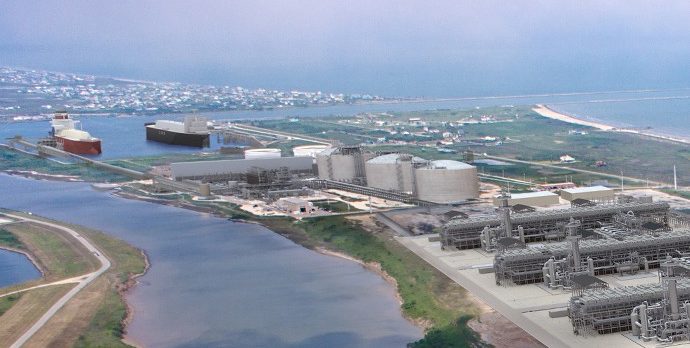McDermott International along with its partners Chiyoda International Corporation and Zachry Group announced that the Train 2 of the Freeport LNG project has begun producing its first LNG fuel. The project known as Cameron LNG Liquefaction project, involves four liquefaction trains, located on Quintana Island in Freeport, Texas.
Specifically, the Train 1 of the three trains, was successfully completed in late August this year and is considered to be the precursor of the first cargo from the LNG terminal, as the company informed.
With the second liquefaction train being in pre-commissioning stage, McDermott International further reported that Freeport LNG Trains 2 and 3 remain on schedule, with Train 3 initial production of LNG scheduled for Q1 of 2020.
First liquid for Train 2 is another great accomplishment for the Freeport LNG project. As we progress to first cargo for Train 2, we applaud the diligence and commitment of the project team for driving Freeport LNG toward a safe completion.
…said Mark Coscio, McDermott’s Senior Vice President for North, Central and South America.
[smlsubform prepend=”GET THE SAFETY4SEA IN YOUR INBOX!” showname=false emailtxt=”” emailholder=”Enter your email address” showsubmit=true submittxt=”Submit” jsthanks=false thankyou=”Thank you for subscribing to our mailing list”]
Moreover, the LNG project apart from the three pre-treatment trains and the liquefaction facility, includes a second loading berth and a 165,000 m3 full containment LNG storage tank.
For the records, the joint venture lead, Zachry Group has also partnered with McDermott in 2011, for the pre- FEED which then followed the FEED works, in order to boost the early development and establishment of the project as a one-stop-shop solution provider for Trains 1 and 2.
Overall, later this month, the 2019 Global Gas Report, announced that Greece has the potential to become an LNG bunkering hub in the Eastern Mediterranean, as its global supply of LNG is rapidly growing and becoming more diverse and flexible, improving overall security of supply of natural gas.






























































